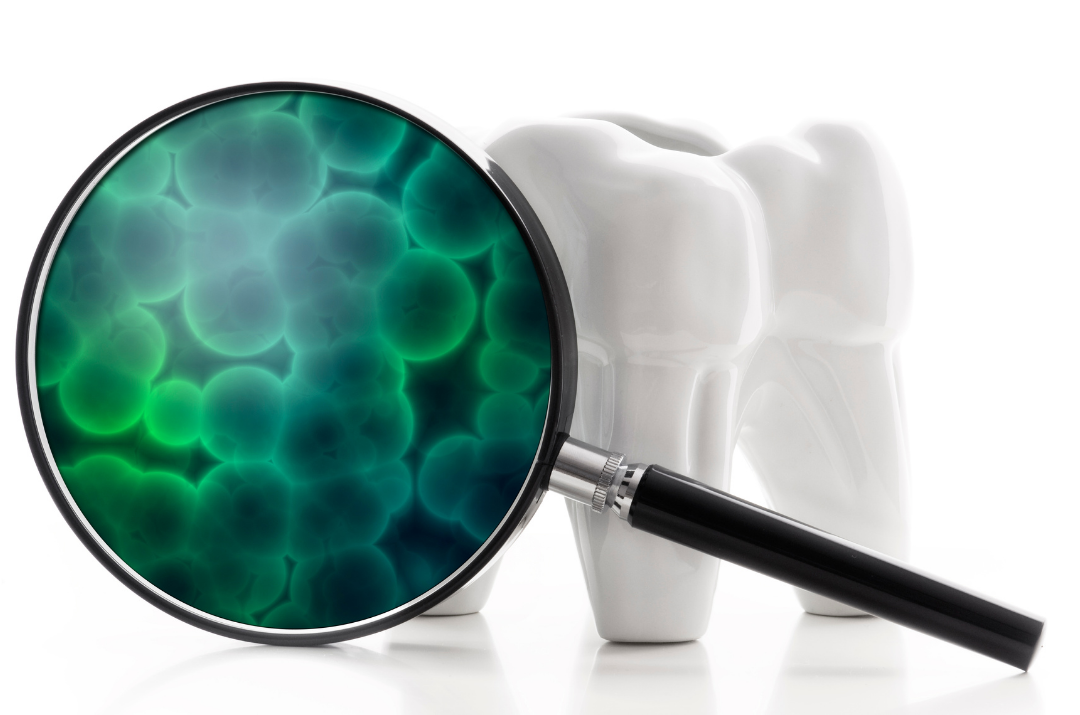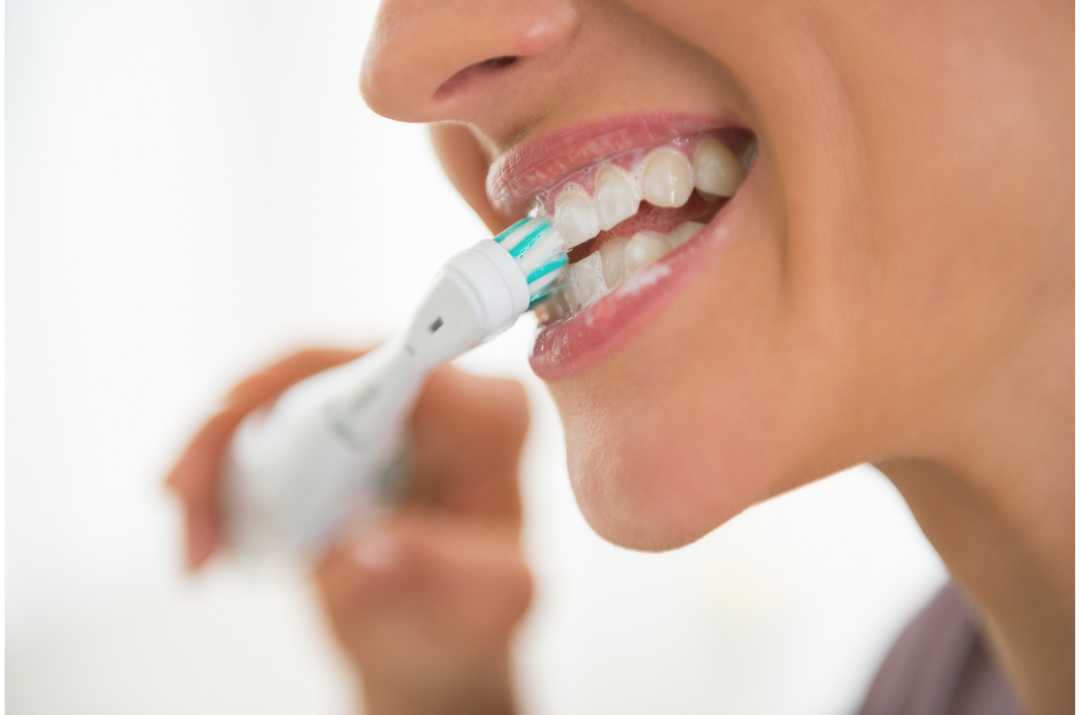It may not be the thing you want to do when you’re tired and ready for bed, and it may not get you excited to jump out of bed in the morning — but brushing your teeth is important. So is flossing, using mouthwash, and any other dental care you find you might need.
Like most parts of your body, your mouth is full of bacteria. Don’t worry, the vast majority of this bacteria is normal and healthy. But slacking on oral hygiene may lead to opportunistic bacteria getting in and causing trouble. Believe it or not, poor oral hygiene has been linked to heart issues and a range of serious health complications.
 It’s a global problem…
It’s a global problem…
Around the world, the stats on dental health are pretty shocking.
For example, it’s estimated that nearly 100 percent of adults have at least one cavity. And 15-20 percent of adults ages 35-44 have severe gum issues.
See, the problem is — even if brushing daily — bacteria can still build up, and decay can still occur. Our teeth can be pretty tight together. So, unless you’re brushing, flossing, and even using mouthwash, food can still get stuck in the smallest of places and bacteria can build up. This can slowly deteriorate the tooth and cause cavities.
Additionally, if your teeth are regularly coming into contact with sugary and acidic foods, this can break down the health of your teeth or stain them.
It may also simply come down to your saliva. Some theorize that, depending on the make-up of your saliva, you may be more prone to cavities. Generally, a coating of saliva on your teeth offers protection against cavities. But some saliva may not offer as much protection as others, and low-levels of saliva can lead to less protected teeth.
So, what can be done?
As we mentioned earlier, poor oral health can lead to a range of serious health complications, especially in the heart. This is due to the possibility of bacteria that has built up in the gums getting into the bloodstream.
But the risk of oral health issues can be greatly reduced with regular dental hygiene, along with a few other factors:
- Brushing your teeth with toothpaste at least twice a day

- Flossing your teeth at least once a day
- Decreasing your intake of sugar
- Eating a diet high in fruits and vegetables
- Avoiding tobacco products
- Drinking water
- Regularly visiting your dentist
Common causes
Another way to help prevent oral health issues is to know what causes it! Common causes may include:
- Smoking
- Poor brushing habits
- Frequent snacking on sugary foods and drinks
- The use of substances that reduce the amount of saliva in the mouth
- Family history, or genetics
- Hormonal changes
- Acid reflux or heartburn
- Frequent vomiting, due to the acid
Some of these may be more out of your control than others, which is why it’s important to take extra care of your teeth in some circumstances.
But as we said before, even the most rigorous dental routine could still not fully reduce the risks. That’s why it’s always good to be on the lookout for any signs of an oral health problem!
 Common signs
Common signs
Some signs can be more serious than others, but they should all be taken seriously, especially if persistent or if numerous signs occur at once. Common indications of a possible issues include:
- Ulcers, sores, or tender areas in the mouth that won’t heal after 1-2 weeks
- Bleeding or swollen gums after brushing or flossing
- Chronic bad breath
- Sudden sensitivity to hot and cold temperatures or beverages
- Toothaches
- Loose teeth
- Receding gums
- Pain with chewing or biting
- Swelling of the face and cheek
- Clicking of the jaw
- Cracked or broken teeth
- Frequent dry mouth
If you suddenly or regularly experience any of the above, be sure to schedule an appointment with your dentist for a check up.
Visiting the dentist annually can certainly mitigate the risk of developing oral health issues and help catch any problems early on.
Another way to help
Though visiting the dentist and brushing your teeth is the best way to maintain oral health, nutrition can also offer a helping hand.
Because calcium is so beneficial for your bones and teeth, vitamin D can support oral health as well! In fact, one analysis found that those with lower vitamin D levels were more likely to have oral health issues. It can not only strengthen the health of your bones, but gums as well.
Purality Health’s Micelle Liposomal Vitamin D3 contains vitamin K2 to help ensure that the calcium in your body goes to your bones and teeth instead of building up in places it shouldn’t.
Help support a healthy smile and MORE with vitamin D3/K2!
Click Here To Learn More

References and Resources
- https://www.mayoclinic.org/healthy-lifestyle/adult-health/in-depth/dental/art-20047475
- https://www.healthline.com/health/dental-and-oral-health#causes
- https://lakesidedentalspokane.com/2019/06/12/why-do-some-people-still-get-cavities-even-when-they-brush-their-teeth/
- https://www.ncbi.nlm.nih.gov/pmc/articles/PMC7285165/
